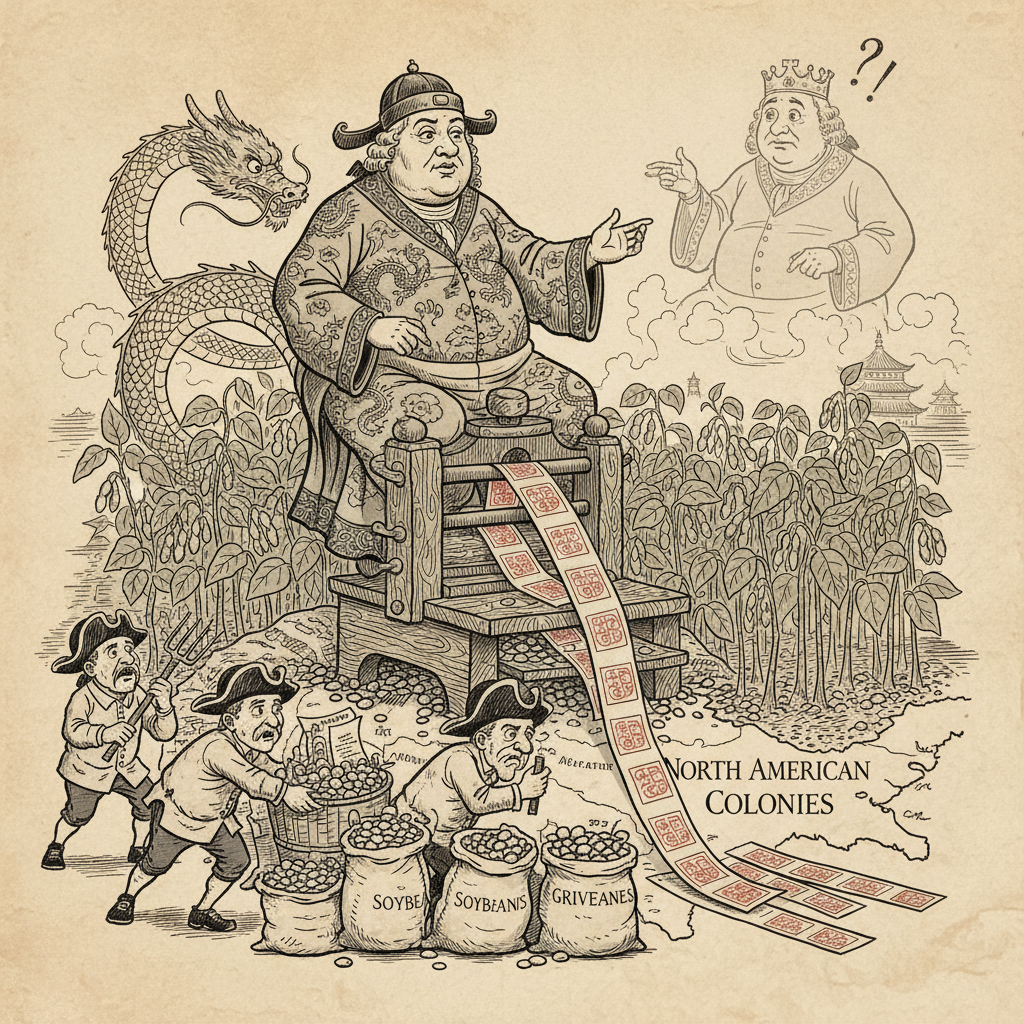The Trump administration announced Friday that China will revert to its previously established annual U.S. soybean purchasing volumes, a move widely presented as a significant economic development.
Details:
- China has pledged to restore its U.S. soybean acquisitions to levels consistent with prior annual averages, following a period of fluctuating trade relations.
- This economic "return to normalcy" is celebrated by officials as a victory, reminiscent of colonists being "granted" certain trade permissions by a distant, powerful authority.
- The precise mechanisms or concessions that secured this re-commitment remain largely obscured, leading to speculation regarding the true nature of the agreement's terms.
Why it Matters:
Acceptance of a foreign power's 'decision' to resume basic trade casts a long shadow, echoing grievances foundational to America's liberty. It raises stark questions about economic autonomy and national agency when critical sectors rely on external capitals, mirroring colonial dependence on Westminster's dictates. As John Dickinson warned, in words feeling eternally "_JUST PUBLISHED._", the danger lies not in imposition but in the precedent. This restoration, presented as an edict, not a reciprocal agreement, underscores a precarious global power shift, challenging a nation's prosperity to be free from arbitrary foreign will.
